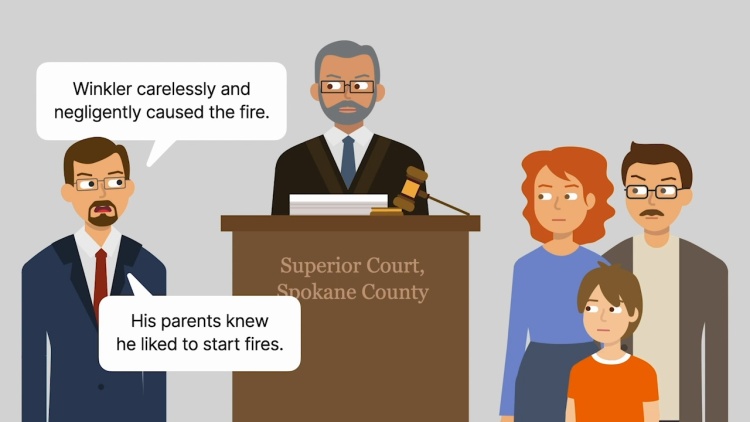Unigard Mutual Insurance Company v. Argonaut Insurance Company
Washington Court of Appeals
579 P.2d 1015 (1978)
- Written by Genan Zilkha, JD
Facts
On July 8, 1973, 11-year-old William Winkler broke into Wilson Elementary School (Wilson), which is part of School District No. 81, and set fire to the contents of a trash can. He tried to extinguish the fire but was unable to. The fire spread, causing damage. Winkler had previously started fires. His parents, Ruth Winkler Hensley and Charles Hensley, had an insurance policy with Unigard Mutual Insurance Co. (Unigard) (plaintiff). Under this policy, Unigard agreed to “pay on behalf of the Insured all sums which the Insured shall become legally obligated to pay as damages because of bodily injury or property damage, to which this insurance applies, caused by an occurrence.” “Occurrence” was defined under the policy as “an accident, including injurious exposure to conditions, which results, during the endorsement term, in bodily injury or property damage.” School District No. 81 sued the Hensleys and Winkler, alleging that Winkler had carelessly and negligently caused the fire at Wilson and that the Hensleys knew Winkler had the propensity to start fires but failed to supervise him. Winkler testified that he intended to light the fire but did not intend to damage the Wilson school building. Unigard brought an action for declaratory judgment against the insurers of School District No. 81 (defendants). seeking a declaration that Unigard was not required to cover Winkler and the Hensleys. The trial court determined that Unigard was not required to cover Winkler and the Hensleys upon finding that the fire was not an accident and was therefore not an insurable occurrence under the Unigard policy. The defendants appealed.
Rule of Law
Issue
Holding and Reasoning (McInturff, J.)
What to do next…
Here's why 910,000 law students have relied on our case briefs:
- Written by law professors and practitioners, not other law students. 47,100 briefs, keyed to 997 casebooks. Top-notch customer support.
- The right amount of information, includes the facts, issues, rule of law, holding and reasoning, and any concurrences and dissents.
- Access in your classes, works on your mobile and tablet. Massive library of related video lessons and high quality multiple-choice questions.
- Easy to use, uniform format for every case brief. Written in plain English, not in legalese. Our briefs summarize and simplify; they don’t just repeat the court’s language.





